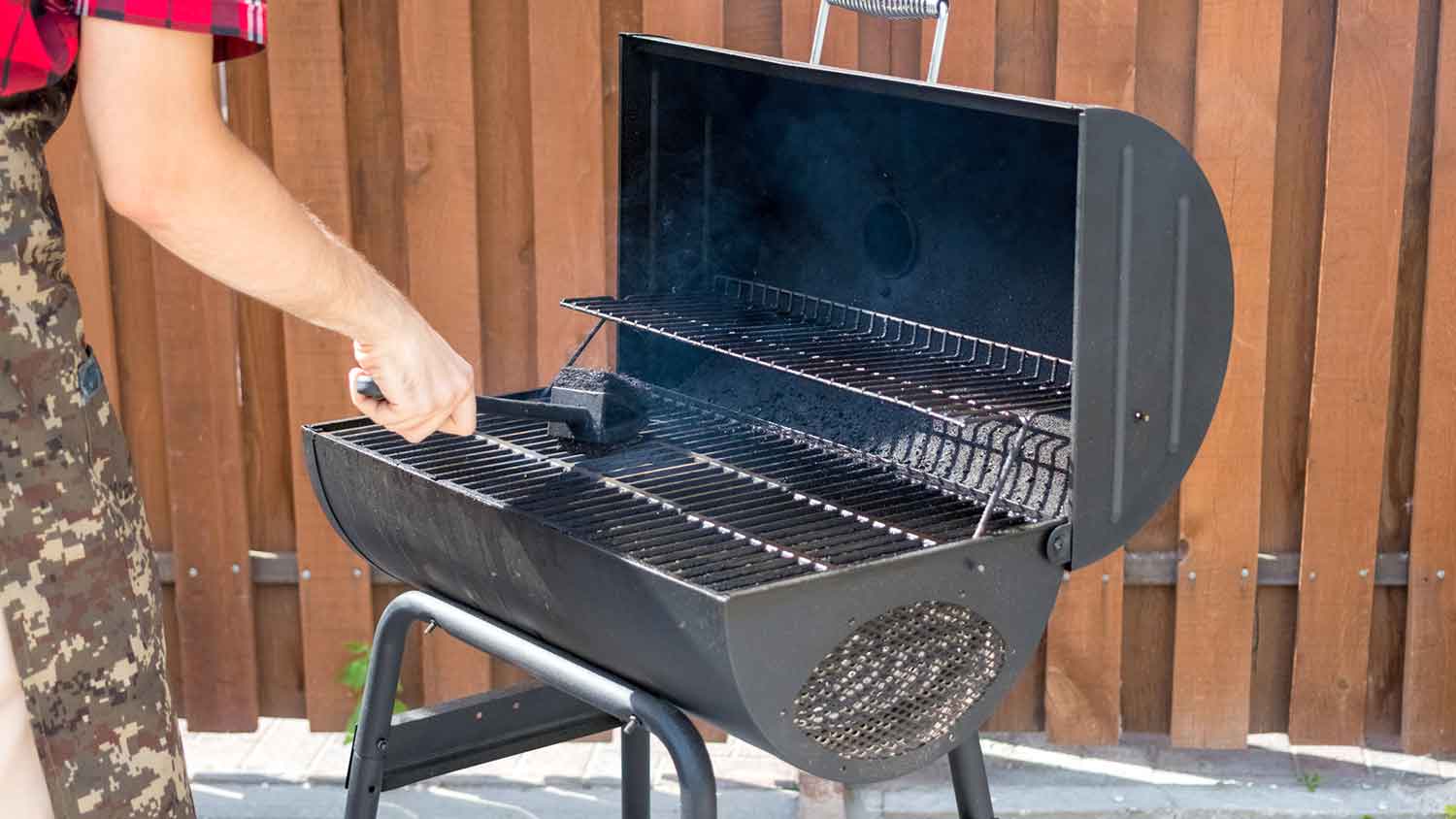
When budgeting for possum removal costs, consider number of animals, location, method of removal, and whether you do it yourself or hire a professional.
These easy steps make a big difference in safety


You’ve probably seen plenty of cute footage of a mischievous bear roaming around a trash can in search of snacks, but these clips are a little less amusing when they involve your camera, trash can, and your house. If these creatures live in your area, you’re likely wondering how to keep bears away from your house. Luckily, there are quite a few practical ways to deter them from hanging out in your neighborhood.
Keep your garbage cans in a garage or shed until right before pickup time. This simple step makes a major difference, as bears have one of the strongest senses of smell in the animal kingdom, if not the strongest. If you prefer putting your garbage out at night, bear-resistant trash cans have locking lids and are made from more durable materials.
Building an electric fence is the priciest but most effective way to keep bears off your property. It costs between $1,700 to $2,500 to install an aboveground electric fence yourself. Unfortunately, standard wooden or chain-link fences don’t cut it, as bears can climb right over them. To save money, you could build a fence around your garden or fruit trees—two common bear attractors—instead of the entire property.

If you live in bear territory and tend a vegetable garden or fruit trees and bushes, it’s best to plant them farther from the house. This won’t prevent bears from approaching your property, but it should keep them away from the house and stop them from causing excess damage.
Bears aren’t picky eaters, and they have no hesitation in snacking on birdseed. As a result, you may want to remove the bird feeders in your yard, at least from April to November, when bears are active. Make sure to clean up any birdseed on the ground, too. Along with bears, this helps keep coyotes away as well.

Cleaning your grill after every use eliminates one more scent that can attract a bear. This includes removing grease from the drip tray and scrubbing the grill grates. It also helps to cover a grill or store it inside when it’s not in use. Remember to leave the propane outside, though.
It’s well known among hikers and campers that bears tend to stay away when they hear humans talking, and the same is true regarding your house. Leaving a radio on at night, usually on your porch, can ward off bears. This method isn’t as reliable as others on the list, but it certainly won’t hurt. Keep in mind that talk radio is recommended over stations that play music. Noise helps keep bobcats away as well.
There are a few quick and affordable ways to make your doors and windows bear-safe:
Use a heavy-duty door bolt
Install round door knobs instead of lever-style ones
If possible, install doors that open outward toward the yard instead of inward
Place heavy shutters or grates over windows
The most important reason to keep bears away from your house is safety. Even though bear encounters rarely result in injury, you don’t want to take any chances regarding yourself, family members, or pets.
The second reason it’s worth bear-proofing is to avoid property damage. Bears can cause everything from minor annoyances like overturned trash cans, scat in the yard, and ransacked fruit trees to costly repairs. If a bear is curious enough, they can shatter windows, tear siding, and break through doors—all of which could cost hundreds of dollars in repairs. The cost of fixing a door alone is $230 on average. Meanwhile, most ways to protect your home from bears cost far less than that.
Bears are found in most states and are especially prevalent in forested parts of the Northeast, Pacific Northwest, Alaska, and the Rocky Mountains. Even though bears are more likely to be seen in rural areas, they can wander through suburban ones, too, so it’s worth knowing signs of their presence. Most are easy to detect—you may notice the following signs:
Scratch marks or worn spots on trees
Bear tracks
Bear scat
Displaced and overturned trash cans
Damaged bird feeders
If you discover signs of another animal while surveying your property, such as moles, opossums, or raccoons, it might be worth calling wildlife control.
Popular depictions of bears show them eating out of honey jars or picnic baskets, and the truth isn’t far off: Bears are omnivores, and they will dig in the trash, eat your dog’s leftover food, fruit in the yard, and birdseed in your feeders. The best way to make sure bears don’t come nosing for lunch boxes or leftovers is to properly seal and store anything tasty so that the smell doesn’t lure them to you.
The advice above should be a good strategy to deter bears from your property and easy enough for anyone to DIY—though you might need help if you want to install an electric fence or need to reinforce doors and windows. However, sometimes bears will continue to come back despite your best efforts. We don’t recommend trying to trap and relocate a bear yourself—it’s highly dangerous. Instead, it’s best to talk to a wildlife removal pro near you about your options.
Wildlife removal costs range from $190 to $615, though this greatly depends on the animal in question. There may be bear removal services near you that tranquilize and relocate or euthanize bears that get too close to your house, but you’ll need to contact these services directly. Depending on where you live, a nuisance bear may be a better task for your state environmental department or game warden to handle if you’ve followed all the other guidance about removing a food source.
From average costs to expert advice, get all the answers you need to get your job done.

When budgeting for possum removal costs, consider number of animals, location, method of removal, and whether you do it yourself or hire a professional.

If iguanas are plaguing your home and destroying your property, proper removal is key. Learn the costs to expect from an iguana removal service.

Raccoons on your property can cause a lot of damage to your home and yard. This guide breaks down raccoon removal costs so you can budget accordingly.

We’ve outlined how to trap armadillos to increase your chances of success with this tricky task and help you know when to hire a pro.

You don’t need to be a wildlife expert to know how to keep bobcats away. We’ve broken down the methods that could save your pet’s life.

When picking the best bait for snakes, first identify the type of snake to learn more about its natural diet, then choose one of these.